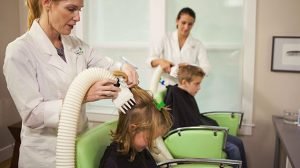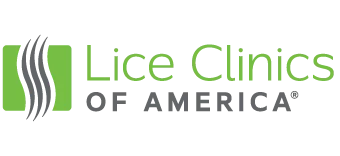4 Reasons You Still Have Head Lice Even After Treatment
How is it possible?
So much time, energy, and worry went into researching what to do and treating the case of lice. How is it possible that they aren’t gone?!
The articles online were so convincing and sure of themselves. How could lice survive a heavy treatment of pesticide shampoo? Or, how could lice survive a home treatment with something designed to smother them all night? Are these tiny bugs robots that are unaffected by any attempt to kill them?!
According to the CDC there are 6-12 million cases of lice each year…and that is just counting children. It is not uncommon to have a terrible time getting rid of these little creatures. If the infestation is not dealt with completely, it may be months of ongoing trouble to finally finish them off. Nobody wants that!
Let’s cover four common issues that people run into that keep their heads itching far longer than they need to. And don’t worry, at the end there is a solution to all of your problems…at least your lice problems 😉
- Over-the-counter treatments may not work. The resistance of head lice to the most popular drugstore products is well-researched and well-documented. The most recent report, issued in 2016, found that most lice in 42 states are now resistant to pyrethroids. Pyrethroids are the active ingredient in most over-the-counter lice products.
- Nitpicking is subject to human error. The most effective alternative to drugstore lice products has traditionally been nitpicking. This is the process of combing out live lice with a special lice comb, then playing a daunting cat-and-mouse game with the lice eggs (nits). They are tiny—about the size of sesame seed—and they attach themselves with the insect equivalent of superglue to hair shafts. The problem is, that if you miss a few, they will hatch, then live lice can multiply again, and you’ll have a fresh infestation.
- Failing to get every member of the household checked. Too often, parents assume that the child that was found to have lice at school or daycare is the only one with lice. Because lice spread primarily from close head-to-head contact or from shared hair accessories like brushes, it’s common for the family members to share. Sharing is what we teach our kids to do! If only one person in the family is checked and treated, the lice may show up on someone else’s head before too long. Don’t feel paranoid or panicked, just make sure that everyone is carefully checked.
- Home remedies are unproven at best, dangerous at worst. Maybe they will work and maybe they won’t. Feel free to give them a try if you want, just be sure to keep a close eye on the infested scalp and the others in your household. You can search the Internet for lice solutions and find bloggers and others that swear by home treatments like mayonnaise, petroleum jelly, olive oil, and even kerosene (I know!). The methods vary, but in general, this involves covering a child’s head with one of these substances overnight.
For the most part, these home remedies are harmless (excluding the kerosene). They are typically an effort to avoid exposure to pesticides, which is a reasonable thing to do. The trouble is just that the treatment may or may not work. You may have to cycle through a few protocols to find one that works. Thankfully, there is a better option.
No Pesticide AND No Lice
The ideal treatment is something that kills the lice and nits at the same time without the use of chemicals harmful to people or the environment. There is now an FDA approved device called the AirAllé® medical device that kills lice and nits without the use of chemicals.

Head lice treatments in process
This device is available only through the Lice Clinics of America. There are an ever increasing number of clinics available so find your nearest location. At the Lice Clinics of America, you can be treated in 30-90 minutes, depending on your hair length, and know that clinical tests have shown the effectiveness of this method. Make a note of your nearest clinic for future reference or make an appointment today if you are dealing with an infestation. Lice do not have to be a persistent problem lasting weeks or months!










